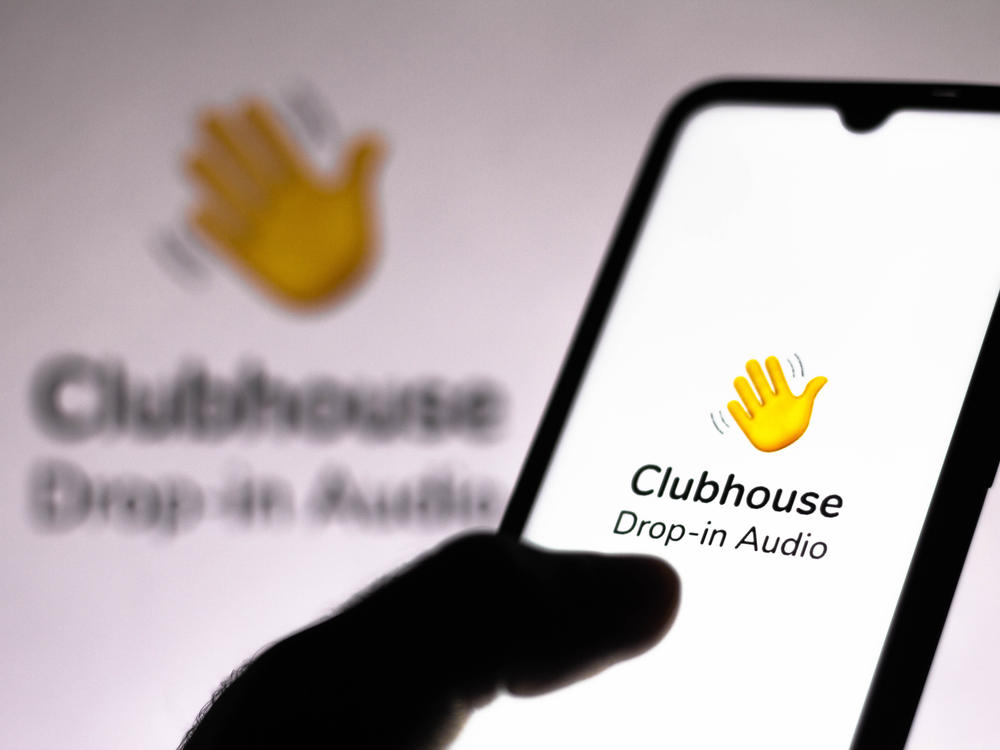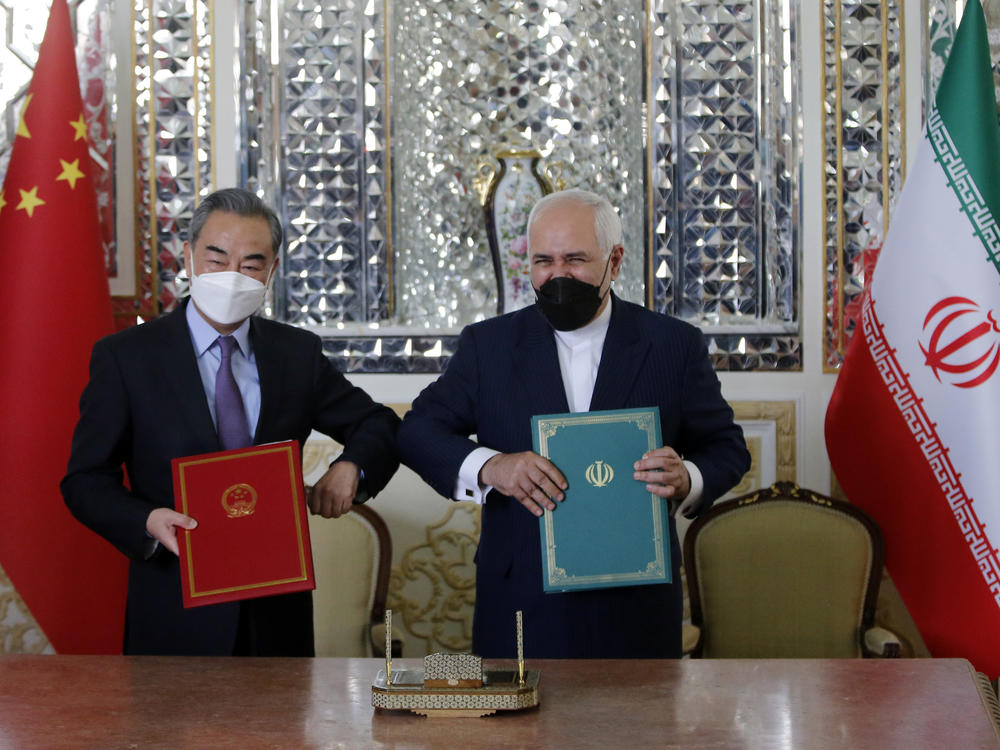Section Branding
Header Content
In Iran, Clubhouse Means Unfiltered Chats, Even With Top Officials. But For How Long?
Primary Content
ISTANBUL — Clubhouse, the invitation-only app billed as "a space for casual, drop-in audio conversations," has attracted users from many parts of the world.
Not everyone is a fan: the Anti-Defamation League says the app's lack of moderation has attracted extremism and hate speech.
But in Iran, Clubhouse has begun to catch on.
Haniyeh, a language teacher in Tehran, says she likes to drop in on conversations about poetry, literature and education. She says it's a way to meet others in her field and to attract new students. She asked that her family name not be used for fear of retribution for speaking to Western media.
She's not surprised the app is becoming popular in her country.
"Iranians have always liked social apps," she says, perhaps because they sometimes find it hard to make connections in the real world. Instagram is popular, especially with young Iranians.
"Sometimes people are shy," she says, "but in cyber-world, people can talk more freely."
Haniyeh says if Clubhouse doesn't get censored by the government, it will have "a really high potential for all people to express their ideas freely."
That includes politicians — even some of the highest-ranking ones.
A platform for politicians
"The presence of Iranian politicians on Clubhouse has been very interesting," she says. "I've heard from my own friends who participated in Mr. Zarif's room, for example."
That would be Mohammad Javad Zarif, Iran's foreign minister.
When Iranian officials took to the app on March 31 to explain a 25-year, $400 billion agreement with China, one of them invited Zarif to join. He promptly did.
The chatroom quickly filled to its 8,000-person capacity. One of those listening in was Amir Rashidi, a New York-based internet security and digital rights researcher who serves as the director of digital rights and security at the Miaan Group.
Rashidi says the conversation shifted from the China deal to politics, and Zarif erupted when the subject of a recent hit television series came up.
Titled Gando, and reportedly produced with guidance from Iran's Islamic Revolutionary Guards Corps, the fictional spy thriller paints a picture of the government — and especially the foreign minister — as corrupt and incompetent.
"He was really mad, yelling, because he was really outraged by that TV series," says Rashidi. "Basically, his argument was, 'We are trying to do our best; I want to go back to the university and, you know, teaching, things like that.'"
Rashidi and others say that kind of interaction between high-level officials and the public doesn't happen very often in Iran. But that's not to say Clubhouse is transforming the country.
Designed for iPhones, Clubhouse has had relatively few users in Android-friendly Iran. Rashidi says once an unofficial Android version was developed in the country, he saw downloads of that version jump from 20,000 to 50,000 in a matter of weeks, and keep going.
Fear of government restrictions
One concern among Iranian Clubhouse fans is what might happen if the government gets worried about it — which seems likely, given that elections are scheduled for June.
Reformers successfully used Telegram, an encrypted social media and messaging app, in 2016 to promote their favored candidates in parliamentary races. Rashidi says their slate of candidates, known as the "List of Hope," won the most seats — but the backlash wasn't long in coming.
"The Iranian authorities arrested 12 [administrators] of reformist Telegram channels," he says, "and basically two months after the election, they blocked Telegram."
The fate of Clubhouse may depend, Rashidi says, on what kind of presidential election the authorities want to see this June — a lively, competitive race with high voter turnout, or a tightly controlled exercise that improves the odds for hardline candidates.
If it's the latter option, Clubhouse could be in for official scrutiny. The hardline Kayhan news outlet is already calling on the government to impose "authoritarian filtering" to such platforms.
Copyright 2021 NPR. To see more, visit https://www.npr.org.


